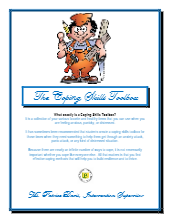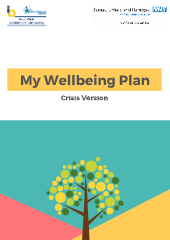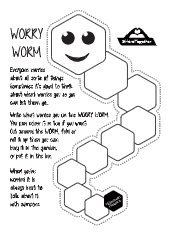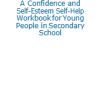
The “Coping Skills Toolbox – Collection of Resources for Older Children” is a comprehensive guide that provides various tools and techniques to help older children manage anxiety, stress, and emotional challenges.
Document’s overview:
-
Coping Skills Toolbox Explanation: It explains what a Coping Skills Toolbox is – a collection of favorite and healthy items used when feeling anxious, panicky, or distressed.
-
Types of Coping Strategies:
- Self-Soothing: Using the five senses for comfort (e.g., something to touch like a stress ball, something to hear like music).
- Distraction: Activities to divert attention from the problem (e.g., puzzles, books, artwork).
- Opposite Action: Engaging in activities opposite of the impulse that align with positive emotions (e.g., affirmations, watching funny movies).
- Emotional Awareness: Tools for identifying and expressing feelings (e.g., emotion charts, journals).
- Mindfulness: Centering and grounding in the present (e.g., meditation recordings, grounding objects).
- Crisis Plan: Contact information for support resources.
-
List of Coping Skills: It provides a detailed list of 99 coping skills, including exercises, creative activities, and relaxation techniques.
-
Positive Self-Talk: The importance of positive self-talk and its impact on mental well-being is emphasized with examples and practices.
-
Cognitive Exercises: It includes activities like “Learning to be GLAD,” which focuses on gratitude, learning, accomplishment, and delight in daily life.
-
Digital and Mobile Resources: Recommendations for apps that help children and teens with anxiety are provided, offering tools for mindfulness, relaxation, and distraction.
-
Educational Resources: It suggests books and other resources for children and families to learn about coping skills.
-
Specific Techniques and Worksheets: Various techniques such as deep breathing, body outline worksheets, and relaxation exercises are provided with detailed instructions.
-
Classroom Interventions: Guidelines for teachers to support children with anxiety in educational settings.
-
Cognitive Distortions and Unhelpful Thinking Styles: It explains common cognitive distortions and unhelpful thinking styles with strategies to address them.
-
Practical Application: The document encourages the practical application of these tools and techniques, suggesting ways to integrate them into daily life.
This resource is valuable for social workers, educators, parents, and caregivers to support children in developing healthy coping mechanisms. It emphasizes practicality, offering a range of activities and strategies tailored to different needs and situations.
FREE PDF DOWNLOAD OF COPING SKILLS TOOLBOX – COLLECTION OF RESOURCES FOR OLDER CHILDREN








